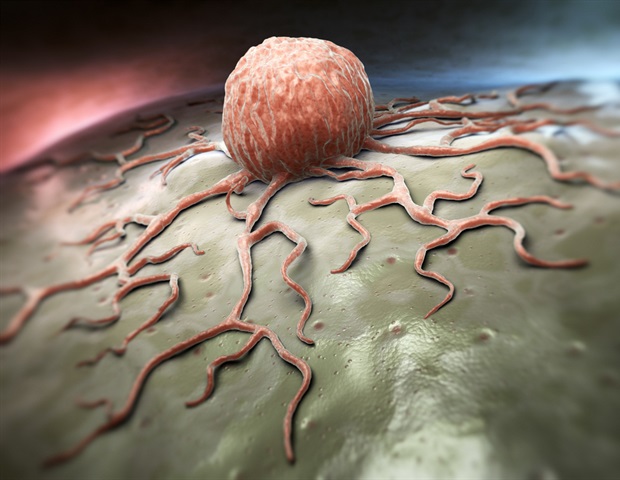CAR T cells are T cells that have been engineered to attack specific targets found on cancer cells. They have had remarkable results in some patients with blood cancers. But they have not performed well against other cancers including solid-tumor cancers, such as pancreatic cancer, prostate cancer, and melanoma. Researchers have been searching for techniques to boost the effectiveness of CAR T cell therapy.
The study, published today in Science Immunology, suggests that knocking out CD5 could be a prime technique. Illuminating the protein’s previously murky role, the researchers found that it works as a powerful immune checkpoint, reining in T cell effectiveness. Removing it, they showed, dramatically enhanced CAR T cell anticancer activity in a variety of preclinical cancer models.
We’ve discovered in preclinical models that CD5 deletion greatly enhances the function of CAR T cells against multiple cancers. The striking effects we observed across preclinical models suggest that CD5 knockout could be a general strategy for enhancing CAR T cell function.”
Marco Ruella, MD, senior author, assistant professor of Hematology-Oncology, researcher with the Center for Cellular Immunotherapies and the scientific director of Penn Medicine’s Lymphoma Program
The study’s first author is Ruchi Patel, PhD, a recent graduate student from the Ruella Laboratory.
Immune checkpoint basics
Immune checkpoint mechanisms are regulatory switches that help keep immune responses from becoming too intense and causing collateral tissue damage. Cancers often hijack these mechanisms to suppress anticancer immune responses.
Scientists have already identified several major immune checkpoint proteins including PD-1 and CTLA-4, which were the targets of the earliest successful immune checkpoint inhibitor therapies, including ipilimumab, nivolumab, and pembrolizumab. While researchers are investigating the genetic deletion of these proteins to enhance CAR T cell therapies, scientists believe there are other, so-far-undiscovered immune checkpoint mechanisms that cancers exploit.
Strategy for focusing on CD5
Before studying the role of CD5 in CAR T cells, the researchers initially focused on CD5 as a tumor target. The CD5 protein is highly expressed on cancerous T cells in T-cell lymphoma and T-cell acute lymphoblastic leukemia, rare blood cancers that do not have effective immunotherapy treatment options. In particular, none of the currently available commercial CAR T cell therapies are approved to treat T-cell lymphomas.
Ruella’s team first engineered CAR T cells that target CD5-bearing cells to treat these malignancies but soon realized that they needed to delete CD5 in CAR T cells to prevent the CAR T cells from killing each other since the CAR T cells naturally express CD5. Therefore, using CRISPR-Cas9 technology, they deleted the CD5 gene in CAR T cells, so the engineered cells wouldn’t attack each other. This knockout of CD5 in the CAR T cells turned out to provide a dramatic boost to their effectiveness in lab experiments with a variety of T-cell malignancies.
However, the researchers soon realized that CD5 deletion was able to broadly enhance the anti-tumor effect of multiple CAR T products for both liquid and solid cancers. The researchers found similar improvements in effectiveness in laboratory studies when they tested the CD5-knockout strategy in CAR T cells engineered to target other, non-CD5-bearing cancers including B-cell leukemias and lymphomas, pancreatic cancer and prostate cancer. They observed increases in proliferation and survival of the CAR T cells as well as increased cancer-cell-killing activity, and these effects surpassed those observed after the knockout of the known immune checkpoint protein PD-1. The researchers also found that CD5 knockout could improve the anticancer activity of other T cells, again suggesting that CD5 is an important immune checkpoint protein in these cells.
In the study, the team detailed the molecular mechanisms of CD5 knockout, showing that it enhances the activities of genes relating to T cell activation and cell-killing effectiveness. Analyzing a large database of tumor biopsies, the investigators also linked relatively low CD5 expression in T cells to better patient outcomes.
Research moves into clinical trial
A Phase I clinical trial of CD5-knockout CAR T cells will soon begin enrolling patients with CD5-bearing T-cell lymphomas. “If the CD5-knockout strategy is safe and effective in such trials, it could be tested against a wider range of cancers,” Ruella said. “We’re excited to see this work move ‘from bench to bedside’.”
For more information about cancer clinical trials at Penn Medicine, visit the Abramson Cancer Center Clinical Trial Information Service website or call 1-855-216-0098 to speak to a clinical trial navigator.
The research was supported by funding from the National Institutes of Health and National Cancer Institute (R37-CA-262362-02), Leukemia and Lymphoma Society, Gilead Research Scholar Award in Hematology, Emerson Collective, Laffey McHugh Foundation, Parker Institute for Cancer Immunotherapy, Berman and Maguire Funds for Lymphoma Research at Penn, American Society of Hematology, and viTToria Biotherapeutics.
Source:
University of Pennsylvania
Journal reference:
Patel, R. P., et al. (2024) CD5 deletion enhances the antitumor activity of adoptive T cell therapies. Science Immunology. doi.org/10.1126/sciimmunol.adn6509.








